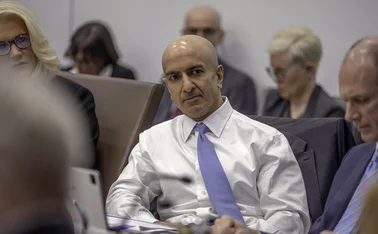
EU needs radical fiscal reforms, IMF report says
Framework would aim to free ECB from having to stabilise sovereign bond markets

The European Union should carry out radical reforms to its fiscal rules, a report published by the International Monetary Fund on September 5 suggests.
The proposed framework would combine the creation of common fiscal tools with the reinforcement of debt sustainability at the national level. The IMF’s proposal crucially involves the creation of a common fiscal capacity. It aims to foster macroeconomic stability when monetary policy is operating at the lower bound and the resources to provide
Only users who have a paid subscription or are part of a corporate subscription are able to print or copy content.
To access these options, along with all other subscription benefits, please contact info@centralbanking.com or view our subscription options here: www.centralbanking.com/subscriptions
You are currently unable to print this content. Please contact info@centralbanking.com to find out more.
You are currently unable to copy this content. Please contact info@centralbanking.com to find out more.
Copyright Infopro Digital Limited. All rights reserved.
As outlined in our terms and conditions, https://www.infopro-digital.com/terms-and-conditions/subscriptions/ (point 2.4), printing is limited to a single copy.
If you would like to purchase additional rights please email info@centralbanking.com
Copyright Infopro Digital Limited. All rights reserved.
You may share this content using our article tools. As outlined in our terms and conditions, https://www.infopro-digital.com/terms-and-conditions/subscriptions/ (clause 2.4), an Authorised User may only make one copy of the materials for their own personal use. You must also comply with the restrictions in clause 2.5.
If you would like to purchase additional rights please email info@centralbanking.com







